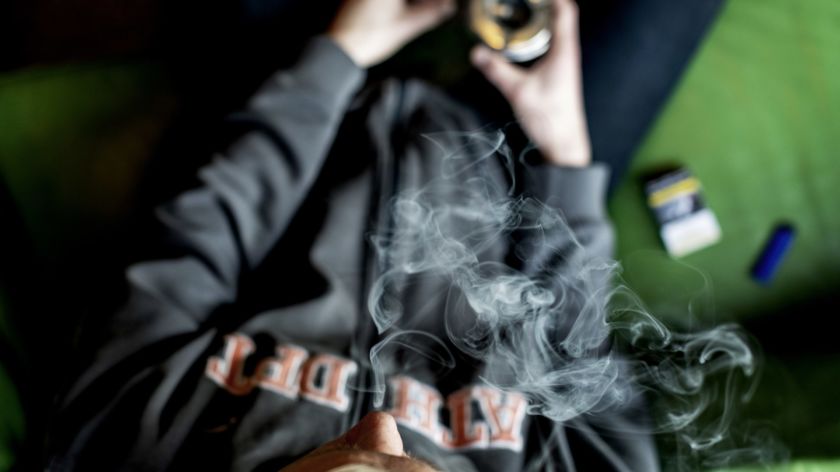Students smoked more weed, but drank less alcohol during first lockdown
-
 Picture for illustrative purposes. Photo: Duncan de Fey
Picture for illustrative purposes. Photo: Duncan de Fey
Students began drinking less during the first lockdown, tobacco use remained about the same and the use of cannabis even increased a little bit. This is apparent from research done by the Behavioural Science Institute (BSI). ‘Apparently sitting at home causes students to smoke more weed or hashish.’
During the first lockdown, in the spring of 2020, 10.000 students were asked about their use of alcohol, tobacco and cannabis.
The results are similar to those of research done by Vox in 2021: both studies showed a decrease in alcohol use during the lockdown. A difference is that the BSI research shows that the group of students that smokes weed weekly has grown. According to the researchers, the results give a good indication of the effect of the COVID-19 restrictions on substance use among students, even though the subsequent lockdowns have not been researched yet.
Binge drinking
The BSI research showed that the percentage of students smoking weed on a weekly basis has increased from an average of 6,7 percent to 8,6 percent. The number of students that smoked at least once per week during the lockdown remained the same as the previous percentage (about 11,5 percent). The researchers also looked at the number of weekly binge drinkers: students that drink six or more glasses of alcohol per occasion. That number shrunk from an average of 27,8 to 13,9 percent.
The research is part of the COVID-19 International Student Well-Being Study of the University of Antwerp. Affiliated universities and colleges researched student well-being during the COVID-19 pandemic. A survey was distributed during the spring of 2020 at six Dutch educational institutes, among which was Radboud University. The BSI researchers used the responses for their own study on the weekly substance use of students.
Men at higher risk
PhD student Kirsten van Hooijdonk does research on student well-being and helped in the study. The results do not surprise her. ‘We already expected alcohol use to decrease during the lockdown, because there were fewer occasions to drink.’ The increase in the use of cannabis is much more surprising, she thinks. ‘That probably has to do with sitting at home a lot. Apparently, that causes students to smoke more weed or hashish.’
Both before and during the COVID-19 pandemic, researchers found that a certain group of participants has a higher risk for weekly substance use. Male students and students living on their own are more at risk, the same goes for students who are in their bachelor’s phase. Van Hooijdonk: ‘These are factors that appear to not be influenced much by sudden stressful events such as a COVID-19 lockdown, but are stable over time.’
‘The lockdowns ask a lot of students’
Other factors that increase the risk of weekly binge drinking, smoking and cannabis use are having fewer financial resources and not abiding by the corona restrictions too much. Students with depression or who have not been born in The Netherlands also score higher at the use of one or more of the researched substances.
Special about this research is, according to Van Hooijdonk, that many factors and developments during the pandemic were taken into consideration. ‘The lockdowns ask a lot of students. It is important we research the effects they have on student life and well-being, so students can receive better support.’
Extra support
Which role can Radboud University play in this scenario? ‘As an educational institute it is at least important to know what’s at play,’ says Van Hooijdonk. ‘If you know which subgroups are more at risk for risky substance use, you can offer those groups extra support, for example with coaching or interventions on a healthy lifestyle. These students might experience serious long-term consequences because of their substance use.’
The PhD student will keep doing research on the well-being and lifestyle of students, within the project Healthy Student Life. A first survey was distributed at the end of the last year. Those results showed that students have begun to worry less about the negative influence of the pandemic on their social life and the quality of education compared to the spring of 2021. In the spring of 2022, BSI researchers will distribute a second survey among all students of Radboud University.





Jason Harvey schreef op 9 oktober 2023 om 20:55
Great Post! The shift in student substance use patterns during the first lockdown highlights the complex interplay of psychological, social, and environmental factors. Understanding these dynamics is essential for developing targeted interventions that promote responsible substance use and support the well-being of individuals, especially during challenging times.